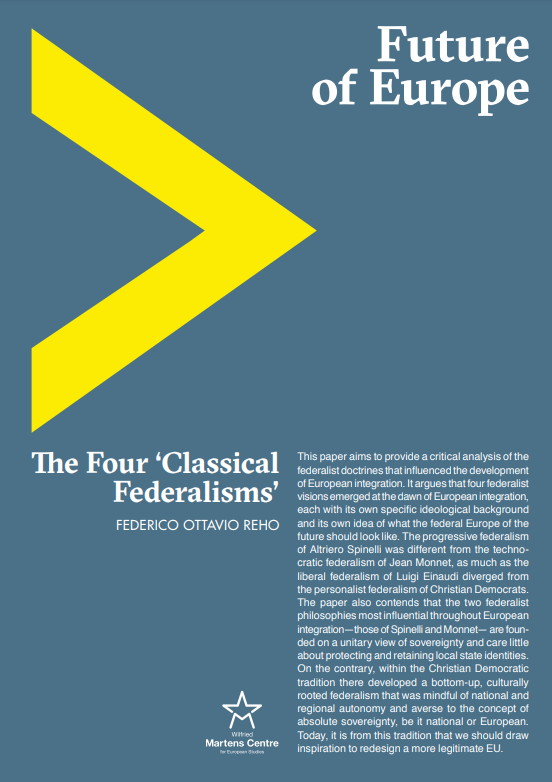The Four ‘Classical Federalisms’
22 October 2018
This paper aims to provide a critical analysis of the federalist doctrines that influenced the development of European integration. It argues that four federalist visions emerged at the dawn of European integration, each with its own specific ideological background and its own idea of what the federal Europe of the future should look like. The progressive federalism of Altriero Spinelli was different from the technocratic federalism of Jean Monnet, as much as the liberal federalism of Luigi Einaudi diverged from the personalist federalism of Christian Democrats.
The paper also contends that the two federalist philosophies most influential throughout European integration—those of Spinelli and Monnet— are founded on a unitary view of sovereignty and care little about protecting and retaining local state identities. On the contrary, within the Christian Democratic tradition there developed a bottom-up, culturally rooted federalism that was mindful of national and regional autonomy and averse to the concept of absolute sovereignty, be it national or European. Today, it is from this tradition that we should draw inspiration to redesign a more legitimate EU.
ENJOYING THIS CONTENT
